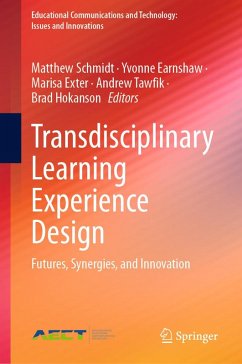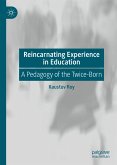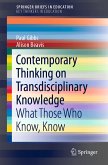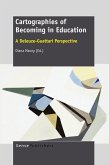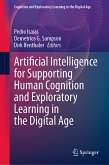This book is explores the evolving field of Learning Experience Design (LXD). It provides a multifaceted view of LXD, incorporating perspectives from instructional design, educational technology, and beyond, reflecting the transdisciplinary nature of this design approach. This edited volume responds to the growing recognition of LXD as a distinct area of study and practice within instructional design, especially in the context of rapid technological advancements and changing educational landscapes.
The subject of this work is Learning Experience Design, a field integrating multidisciplinary knowledge and techniques to create effective, enjoyable, and meaningful learning experiences. The book delves into participatory and co-design, innovative LXD methods, learning-focused usability research, and theoretical and conceptual advancements in LXD. It features design cases that provide real-world insights and applications, making the content rich and relatable for researchers and practitioners alike.
Readers will find the sections on participatory design, innovative methodologies, and the transdisciplinary synergies of particular interest. These areas represent areas of LXD that are in need of further investigation, so as to better illuminate how learning experiences can be conceptualized, implemented, and evaluated. The edited volume's inclusion of learning-focused usability research offers readers further insights into how learners interact with designed learning experiences, highlighting how insights from such studies can lead to ongoing improvements and foster considerations for future designs.
The main benefit readers will derive from this work is a deep, nuanced understanding of current and emerging trends in LXD. Practitioners will gain a wealth of practical strategies and insights to apply in their own work; scholars and students will discover a rich source of theoretical and empirical knowledge to advance both research and practice. The book serves as a catalyst for innovation and cross-disciplinary collaboration, inspiring readers to explore new territories in the learning experience design.
This book offers a comprehensive, insightful, and forward-looking exploration of the field. It will complement the growing corpus of LXD literature, providing both breadth and depth on this dynamic and influential approach to learning design.
The subject of this work is Learning Experience Design, a field integrating multidisciplinary knowledge and techniques to create effective, enjoyable, and meaningful learning experiences. The book delves into participatory and co-design, innovative LXD methods, learning-focused usability research, and theoretical and conceptual advancements in LXD. It features design cases that provide real-world insights and applications, making the content rich and relatable for researchers and practitioners alike.
Readers will find the sections on participatory design, innovative methodologies, and the transdisciplinary synergies of particular interest. These areas represent areas of LXD that are in need of further investigation, so as to better illuminate how learning experiences can be conceptualized, implemented, and evaluated. The edited volume's inclusion of learning-focused usability research offers readers further insights into how learners interact with designed learning experiences, highlighting how insights from such studies can lead to ongoing improvements and foster considerations for future designs.
The main benefit readers will derive from this work is a deep, nuanced understanding of current and emerging trends in LXD. Practitioners will gain a wealth of practical strategies and insights to apply in their own work; scholars and students will discover a rich source of theoretical and empirical knowledge to advance both research and practice. The book serves as a catalyst for innovation and cross-disciplinary collaboration, inspiring readers to explore new territories in the learning experience design.
This book offers a comprehensive, insightful, and forward-looking exploration of the field. It will complement the growing corpus of LXD literature, providing both breadth and depth on this dynamic and influential approach to learning design.
Dieser Download kann aus rechtlichen Gründen nur mit Rechnungsadresse in A, B, BG, CY, CZ, D, DK, EW, E, FIN, F, GR, HR, H, IRL, I, LT, L, LR, M, NL, PL, P, R, S, SLO, SK ausgeliefert werden.

